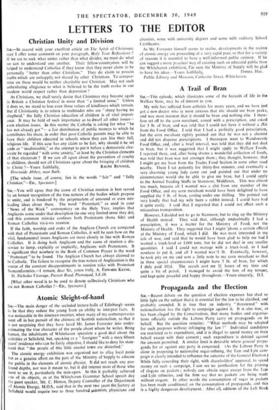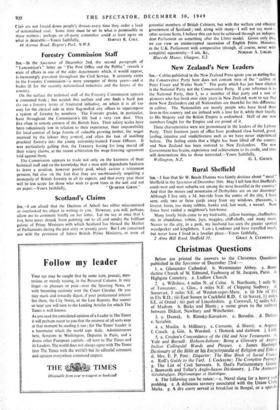Propaganda and the Election
SIR,—Recent debate on the question of election expenses has shed so little light on fhe subject that it is essential for the law to be clarified, and probably amended. It is true that an industry " threatened " with nationalisation has the right to campaign against it. It is also true, as has been alleged by the Conservatives, that many bodies and organisa- tions officially outside the Labour Party carry on propaganda on its behalf. But the question remains: " What methods may be adopted for such purposes without infringing the law ?" Individual candidates are restricted as to expenditure, and it is illegal to spend money on their behalf except with their consent ; such expenditure is debited against the amount permitted. A similar limit is desirable where general propa- ganda for or against any party is concerned. (As the Labour Party is alone in proposing to nationalise sugar-refining, the Tate and Lyle cam- paign is clearly intended to influence the outcome of the General Election.) While fully conceding their right, with shareholders' approval, to spend money on such a campaign, I can see no justification for the printing of slogans on packets ; nobody can obtain sugar except from the Tale and Lyle refineries, and the firm say that no packets are being made without slogans. In other words the consumption of sugar in packets has been made conditional on the consumption of propaganda, and this is a highly dangerous development. After all, editions of the Left Book
Club arc not forccd down people's throats every time they order a load of nationalised coal. Some limit must be set to what is permissible in these matters ; perhaps an all-party committee could at least agree on































 Previous page
Previous page